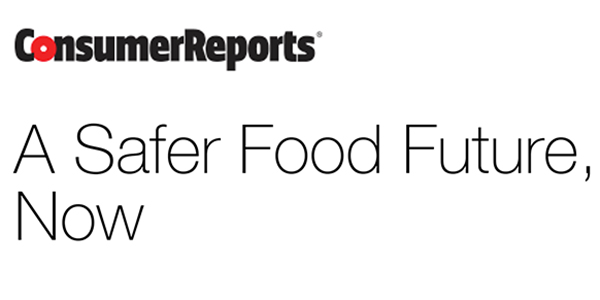In May of 1936, the Great Depression was still dragging on. Grocery budgets were lean, but mothers found ways to scrape together a few extra cents to buy grade A milk. Imagine their surprise when a new magazine called Consumers Union Reports hit newsstands, exposing the upgrade as a total scam (grade A milk was found to be the exact same quality as grade B milk).
The endeavor of raising consumers’ consciousness has stood the test of time. And that magazine, now known as Consumer Reports, is about to turn 80. It is commemorating its anniversary year with a series of opinion essays by leading thinkers on urgent consumer issues. The first essay, by Eric Schlosser, is entitled “A Safer Food Future, Now.”
It’s been 15 years since Schlosser’s groundbreaking book, “Fast Food Nation,” hit the shelves. It was based on a simple but profound thesis: A food system reflects the values of the nation that created it. A decade after its publication, he wrote about how little had changed in food production, safety and consumption in an article for the The Daily Beast. Fast forward another five years, and Schlosser’s Consumer Reports essay opens with a litany of some of the same lingering challenges.
He asserts that the disparate problems with America’s food system have a common explanation: The handful of corporations that now dominate the system are imposing their business costs on the rest of society. Schlosser believes that to create a truly sustainable food system, we have to address both the harmful symptoms and their underlying cause (Hint: It’s not capitalism).
He mentions that changes in food production have been largely driven by the elimination of free markets and real competition. The industry is driven by major players with deep pockets. They donate millions of dollars to campaigns and wield tremendous power over the political system. As Schlosser comments, “…the government now obeys the companies it’s supposed to regulate.”
Schlosser offers up the misuse of antibiotics in agriculture—and the fact that 2 million Americans are infected with antibiotic-resistant bacteria every year—as a prominent example of private interests triumphing over public interest.
Despite overwhelming public support for the Food Safety Modernization Act (FSMA) of 2010—aimed at giving the federal government the power to recall contaminated foods and to punish the companies that knowingly sold them—it took nearly two additional years to pass due to opposition from the food industry. Touted as the most sweeping reform to food safety laws in 70 years, it remains underfunded, according to Schlosser.
But the news isn’t all bad. Following his commentary on the challenges surrounding GMO labeling, stagnate wages and the plight of migrant workers, Schlosser states that he is still optimistic. The food movement is making progress. There has been a notable shift in values. We’re seeing it through the uptick in organic production, the proliferation of farmers’ markets, better wages, greater transparency, and more conscious consumers.
After taking in Schlosser’s insights on how muddled politics are impacting the food system, we can’t help but believe that Consumers Union Reports realized something big 80 years ago. When consumers are empowered with information, they bring about change on their own—one dollar at a time. To date, much of the progress of the food movement has been driven by ordinary citizens gaining consciousness about food’s impact on personal, community and environmental health.

